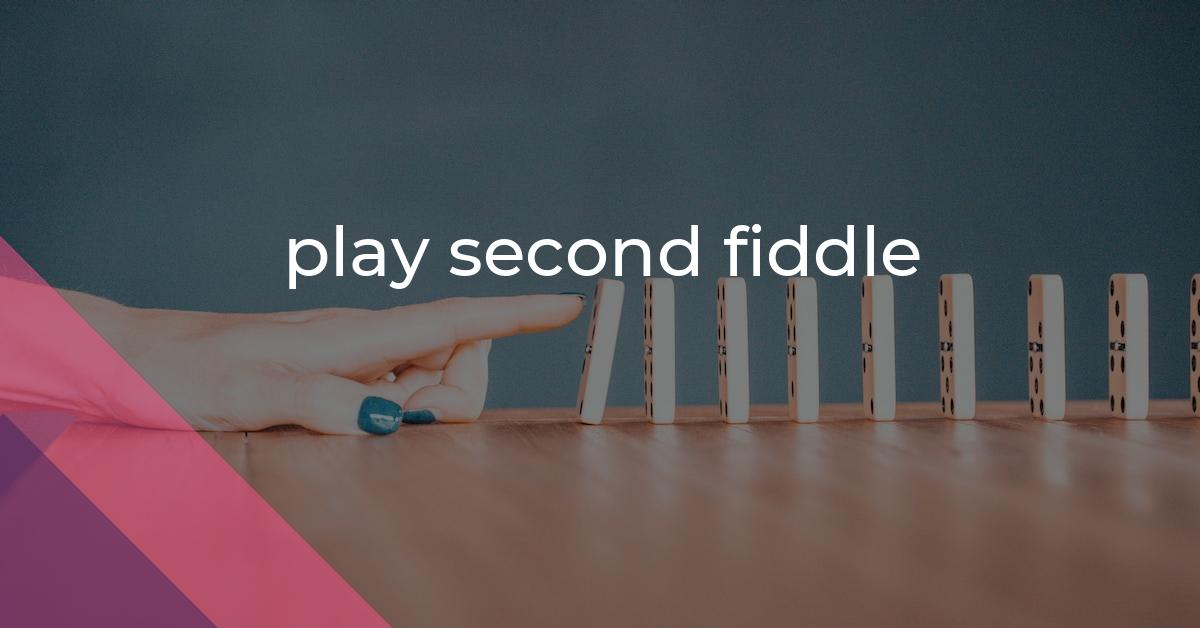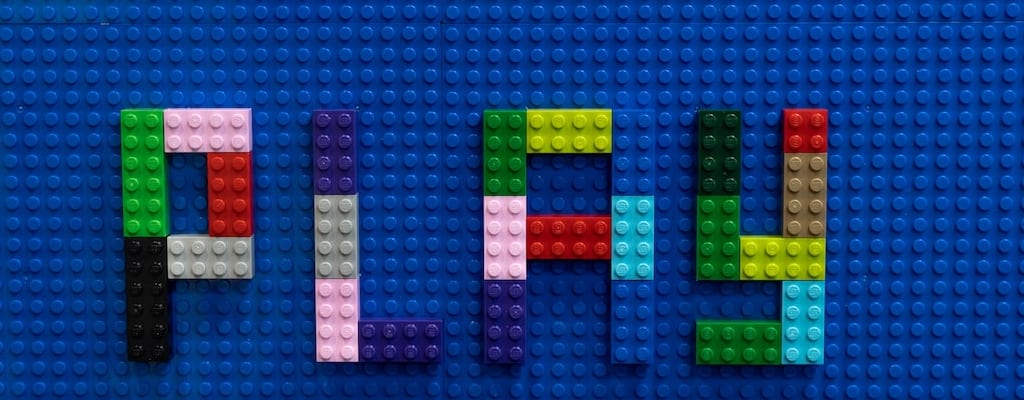play second fiddle: Idiom Meaning and Origin
What does ‘play second fiddle’ mean?
The idiom "play second fiddle" means to take on a subordinate or less important role.

Idiom Explorer
The idiom "take a back seat" means to take a less prominent or active role in a situation or to allow others to take the lead.
The idiom "play well with others" means to have good social skills and be able to cooperate and get along with other people in a group or team.
The idiom "play up" means to emphasize or highlight something, often in order to gain attention or elicit a certain reaction. It can also refer to exaggerating or overplaying a situation or a person's abilities.
The idiom "play the victim card" means to intentionally act like a victim in order to gain sympathy or to avoid taking responsibility for one's actions.
The idiom "play the man and not the ball" means to focus on attacking or criticizing someone personally instead of addressing the issue at hand. It implies a diversion from the main point of the argument and resorting to personal attacks instead.
The idiom *play the hand one is dealt* means to make the best out of a situation or circumstances that one cannot control.
The idiom "play the gender card" means to use one's gender as a way to gain advantage or manipulate a situation, typically in an unfair or strategic manner.
The idiom "play the fool" means to act silly or foolish, often for amusement or as a way to hide one's true thoughts or intentions.
The idiom "play the field" means to date or have romantic or sexual relationships with multiple people at the same time, without committing to any one person. It implies a desire to explore one's options before settling down.
The idiom "play someone like a fiddle" means to manipulate or control someone skillfully, often for personal gain or amusement.
Unyielding Humility.
Play second fiddle is an idiomatic expression commonly used in American English. This idiom is derived from the literal meaning of second fiddle, which refers to the position of the second violinist in an orchestra. The second violinist plays a supporting role to the first violinist, who is typically the lead and receives more attention. This metaphorical usage of second fiddle in idiomatic expressions dates back to the early 19th century.
The idiom play second fiddle is used to describe a situation in which someone is in a subordinate or less important role, often feeling overshadowed by another person who is in a more prominent position. This can occur in various contexts, such as in a professional setting, personal relationships, or even within a group dynamic. The individual who is playing second fiddle may feel marginalized, undervalued, or unappreciated.
One example of the usage of this idiom can be found in politics, where a vice president or a deputy might be said to play second fiddle to the president or prime minister. In this situation, the person in the subordinate role is seen as having less power or influence compared to the person in the leading position.
In the business world, an employee who is constantly overshadowed by a more successful colleague or who is given less important tasks may also feel like they are taking a back seat. This can lead to feelings of frustration, dissatisfaction, and a desire to seek new opportunities elsewhere.
Within personal relationships, the idiom play second fiddle can be related to one's role as a sibling, friend, or even a romantic partner. For example, a younger sibling who consistently feels overshadowed by their older sibling may feel as if they are playing second fiddle in their family dynamic. Similarly, in a romantic relationship, if one partner is always prioritizing the needs and desires of the other, the person who feels less important may express that they are tired of playing second fiddle.
It is important to note that the idiom play second fiddle often carries a negative connotation, as it implies a sense of diminished importance or lack of recognition. It suggests that the person in the subordinate role may be resentful or dissatisfied with their position. However, it is also possible for individuals to willingly take a back seat, recognizing the benefits or advantages it may bring.
The idiom play second fiddle originates from the world of music, specifically the role of the second violinist. It is used metaphorically to describe a situation in which someone is in a subordinate or less important role, often feeling overshadowed by another person who holds a more prominent position. This expression can be applied to various contexts, such as politics, business, and personal relationships. While it typically connotes negativity, some individuals may willingly embrace their position as second fiddle.
Another related idiom is play first fiddle, which is the opposite of playing second fiddle. It is used to describe an individual who is in a leading or more important role. This can be seen in various contexts, such as a CEO who plays first fiddle in a company or a team captain who plays first fiddle within a sports team. The person who plays first fiddle often receives more attention, recognition, and power compared to others. This idiom highlights the disparities in power and influence within different social and professional settings.
Similarly, the idiom take a back seat is related to the concept of playing second fiddle. This idiom is used to describe someone who deliberately chooses to assume a less active or important role in a certain situation. It can signify a willingness to allow others to take the lead or make decisions, often resulting in reduced visibility or influence. For example, a senior executive who decides to take a back seat in a meeting may be indicating a desire for others to take charge or contribute more significantly. This idiom suggests a conscious choice to step back and prioritize the involvement of others.
Lastly, the idiom play down also relates to the idea of playing second fiddle. It is used to describe the act of intentionally minimizing or downplaying the significance or importance of something. This can be done for various reasons, such as to reduce attention, avoid controversy, or maintain a modest demeanor. In the context of playing second fiddle, an individual may play down their own accomplishments or contributions in order to highlight and support the achievements of someone else in a more prominent role. This idiom reflects the dynamics of power, recognition, and self-effacement.
Example usage
Examples of how the idiom "play second fiddle" can be used in a sentence:
- John doesn't like playing second fiddle to his coworkers. He wants to be the team leader.
- As an understudy, Sarah is used to playing second fiddle to the main actress in the theater production.
- Although she is a talented musician, Lisa often feels like she is playing second fiddle to her more successful sister.
More "Roles" idioms
We missed the mark - nothing found.



